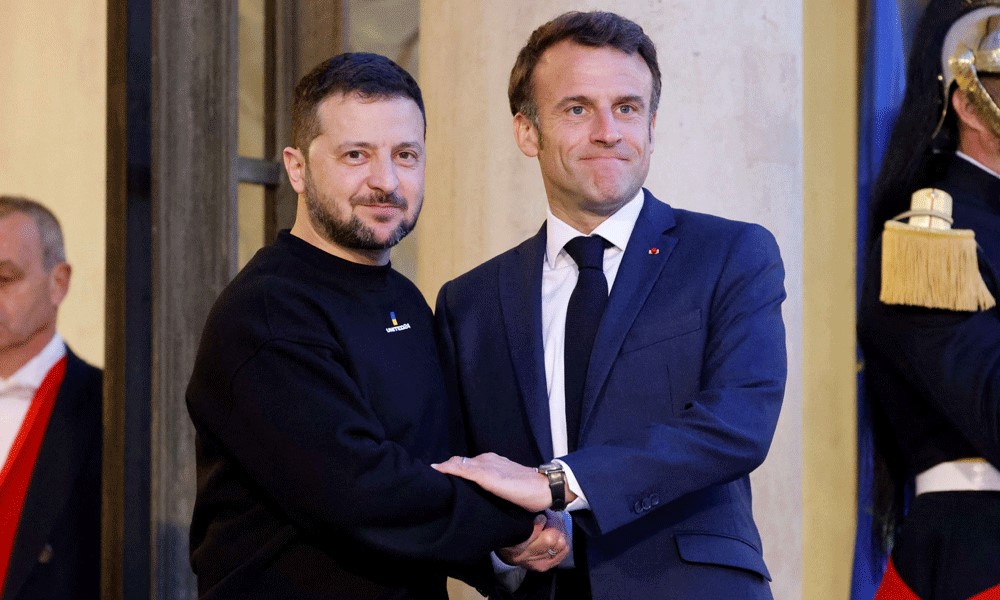Ukraine’s President, Volodymyr Zelensky, is scheduled to meet with German and French leaders on February 16 to finalize bilateral security agreements. These agreements stem from the G7 commitments made in July, where leaders pledged to sign deals addressing Ukraine’s request for sustained military support from Western allies. The upcoming meeting follows through on this commitment, as Russia’s ongoing war against Ukraine persists into its third year.
The G7 leaders, in their July announcement, expressed the intention to establish both bilateral and multilateral security arrangements with Ukraine. This collective effort aims to demonstrate a long-term commitment to supporting Kyiv in the face of geopolitical challenges. Currently, France and Germany are the second and third countries, respectively, to confirm the readiness of their bilateral security deals with Ukraine.
Join us on Telegram: https://t.me/tfiglobal
Zelensky is expected to sign agreements in both capitals on Friday before attending the Munich Security Conference over the weekend. In January, President Macron of France announced the impending French deal and emphasized the gravity of Russia’s aggression in Ukraine as the “most significant risk” to global order. Chancellor Scholz of Germany confirmed the finalization of their deal in a press conference on January 24.
The UK was the first to disclose a security guarantee agreement in mid-January, set to be effective for ten years. This period aligns with Ukraine’s aspirations to become a full member of the NATO military alliance, despite facing numerous challenges along its path.
Read More: UK-Ukraine Defense Pact’s Hidden Agenda Exposed
In addition to these developments, the EU is actively working on a long-term support package for Kyiv, including a sanctioned €50 billion in financial aid. Ongoing negotiations between Kyiv and various EU capitals aim to secure new military support, while discussions with Washington are also underway.
The French security arrangement, in line with G7 declarations, seeks to provide enduring military support to Ukraine for self-defense and prevention of future aggression, as outlined by the Elysée. Despite lacking specific details, the agreement is anticipated to encompass economic support and civil assistance, potentially with dedicated budget allocations.
The precise nature of the deal remains unclear, but it is expected to align with the Vilnius G7 declaration, which commits to formalizing agreements on diverse issues. These include security assistance, bolstering the country’s defense industrial base, enhancing its economic foundation, and offering technical and financial support.
Similarly, the German government has refrained from disclosing specific details, with the deal’s signing between Zelensky and Chancellor Olaf Scholz expected on Friday, according to German news agency DPA.
Read More: In the next 10 yrs. both Germany and France can LEAVE the EU
France, in a previous commitment, pledged to supply 40 new long-range SCALP missiles, “hundreds” of air-to-surface AASM bombs, and a new batch of French-made CEASAR guns. However, it remains uncertain whether the delivery details will be discussed during the leaders’ meeting in Paris on Friday.
In January, President Macron announced his planned visit to Ukraine in February, although specific dates remain undisclosed. Earlier this week, the Elysée denied that any delay in communication of the visit dates was related to security concerns on the ground. However, President Zelensky, seemingly eager and desperate, has now taken the initiative to personally beg President Macron, to finalize the security deal between their nations.
